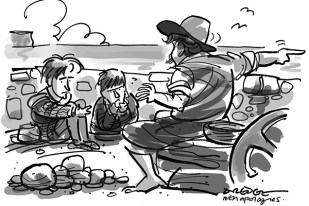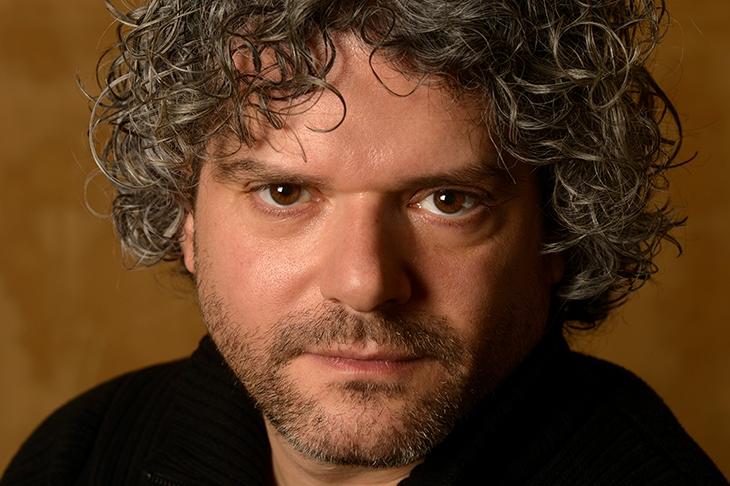Seventh Seltzer is a nice family man, working as a publisher’s reader in New York, who happens to come from a family of cannibals. Specifically, Cannibal-Americans. The Can-Ams are the most marginalised of America’s minorities, largely because of their funerary rites: when one of them dies, the relatives drain the corpse of blood and then eat it. How much of the corpse is eaten becomes a very moot point towards the end of the novel.
Seventh is so called because he’s the seventh of 13 children begotten by his mother, known to them all as Mudd.A monstrous figure, 6ft 2in tall and grotesquely obese, she has been fattening herself up for death, eating a dozen Whoppers a day for the past three years. All her children, like Seventh, are named ordinally — except the last, who as a girl ‘doesn’t count’, so is called Zero. Mudd is keen on squeezing out male heirs because she wants the Cannibal heritage tocontinue, so the chain of tradition can remain unbroken. What she hates and fears most is Assimilation.

Shalom Auslander is best known for his scabrous attacks on his own Jewish faith. He is no atheist; it’s more that he hates God. There is a memorable moment in his memoir, Foreskin’s Lament, when he writes ‘fuck you’ on a piece of paper and shoves it into
a crack in the Wailing Wall. (It is more traditional to write a prayer.) Mudd herself is a simmering cauldron of bigotry, but don’t be fooled by her anti-Semitism: this is simple misdirection.
The Seltzer family may not claim Jewishness, but they certainly act like a parodic exaggeration of a Jewish family — a group of kvetchers including a (failed) entrepreneur, a psychiatrist, a vet, a publisher etc, all bonded in terror, loathing or rejection of their larger-than-life mother (the father is long gone), and bound by arcane tradition.
Their uncle (known as Unclish) is the one who interprets the Cannibal Law, and there is grim humour in the way he does so in a confused and contradictory fashion, while also, as executor of Mudd’s estate (a five-bedroom Brooklyn house), in control of the children’s inheritance. If the rites are not carried out to his satisfaction, they don’t get a dime:
Unclish was a passionate ideologue who brooked no insolence and tolerated no rebellion. With his fist ever in the air, he ranted about the treachery of nations, cursed Cannibals who left the fold, and blasted the evils of America.
Mudd has been fattening herself up for death, eating a dozen Whoppers a day for the past three years
(There is a fine running joke about Jack Nicholson, Cannibal himself, who had a chance to make Cannibals proud again during his 1976 Oscar acceptance speech but blew it. I must say I’m looking forward to the lawsuit.)
On the face of it this is a novel which rages against identity politics. Seventh is sick of reading manuscripts by or about Jewish-Fourth-Wave-Lesbian-Socialist-Pro-Immigration-Anti-Vax-Latinx-Americans (in which Montaigne, who seems to be Mother for Dinner’s moral core or touchstone, is denounced as a ‘Bourgeois-European-Patriarchal-Franco-Roman-Catholic-Cisgendered-Male-Monotheistic-Apologist’). But Auslander is examining, with punishing scrutiny, his own heritage. (Come on: a mother who domineers even in death? A special ritual knife? Twelve male children? That last is a pretty big clue.) And he’s again torn between turning his back on it or embracing it. It’s this conflict which makes Mother for Dinner such an uncomfortably rich and comic novel.






Comments